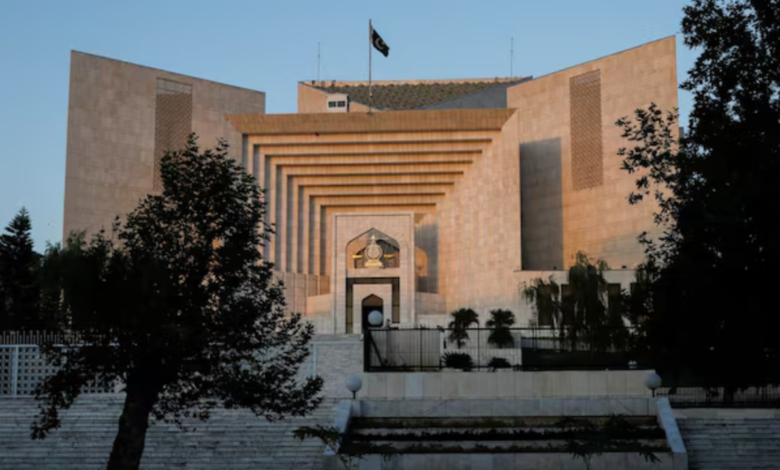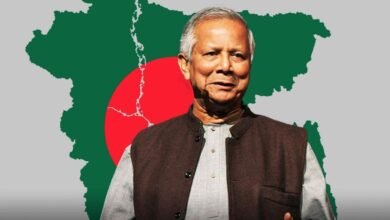Constitution no more: 2 Pak judges resign after controversial amendment limits Supreme Court authority

Constitution no more: 2 Pak judges resign after controversial amendment limits Supreme Court authority
Two senior judges of Pakistan’s Supreme Court resigned on Thursday in protest against the 27th Constitutional Amendment, which they said undermines the Constitution and weakens judicial independence. According to PTI, Justices Mansoor Ali Shah and Athar Minallah tendered their resignations just hours after President Asif Ali Zardari signed the amendment into law, the final step after its passage through both houses of Parliament.
The amendment introduces sweeping changes to Pakistan’s judicial structure by creating a Federal Constitutional Court tasked exclusively with constitutional matters, while the existing Supreme Court will be confined to hearing civil and criminal cases.
Justice Mansoor Ali Shah, in his resignation letter, called the amendment a “grave assault on the Constitution of Pakistan,” saying it “dismantles the Supreme Court of Pakistan, subjugates the judiciary to executive control, and strikes at the very heart of our constitutional democracy.”
“By fracturing the unity of the nation’s apex court, it has crippled judicial independence and integrity, pushing the country back by decades,” Shah wrote. “Such a disfigurement of the constitutional order is unsustainable and will, in time, be reversed — but not before leaving deep institutional scars.”
I CANNOT PROTECT THE CONSTITUTION IN SUCH A SYSTEM: JUSTICE SHAH
Justice Shah said his resignation was a matter of principle, declaring he could not continue serving in an institution that had been stripped of its constitutional role. “Staying on would not only amount to silent acquiescence in a constitutional wrong, but would also mean continuing to sit in a court whose constitutional voice has been muted,” he wrote. “Serving in such a truncated and diminished court, I cannot protect the Constitution, nor can I even judicially examine the amendment that has disfigured it.”
Justice Athar Minallah echoed Shah’s concerns in his own resignation letter, saying he had sworn to uphold “the Constitution” and not merely “a constitution”.
“Prior to the passage of the 27th Amendment, I wrote to the Chief Justice of Pakistan, expressing concern over what its proposed features meant for our constitutional order. Against a canvas of selective silence and inaction, those fears have now come to be,” he said.
Minallah added, “The Constitution I swore to uphold is no more. I can think of no greater assault on its memory than to pretend that, as new foundations are now laid, they rest upon anything other than its grave.”
He further remarked, “What is left of it is a mere shadow; one that breathes neither its spirit, nor speaks the words of the people to whom it belongs. These robes we wear are more than mere ornaments. They are to serve as a reminder of that most noble trust bestowed upon those fortunate enough to don them. Instead, throughout our history, they have too often stood as symbols of betrayal through silence and complicity alike.”
CONTROVERSIAL AMENDMENT RESTRUCTURES POWER
The 27th Amendment, signed by President Zardari earlier on Thursday, fundamentally alters the judicial and military structure of Pakistan. After the amendment’s approval, Law Minister Azam Nazeer Tarar introduced changes to the Practice and Procedure Rules, which were passed by the National Assembly with a majority.
The law minister stated that the amendment and subsequent rule changes were aimed at aligning judicial procedures with the newly created Federal Constitutional Court. He said the prime minister will now send a summary to the president for the appointment of the Chief Justice of the Federal Constitutional Court.
Under the same law, the president will appoint the Chief of Army Staff and the Chief of Defence Force on the prime minister’s advice. The amendment also stipulates that the post of Chairman of the Joint Chiefs of Staff Committee will end on November 27, 2025.
Moreover, the Chief of Defence Forces — who will also serve as Army Chief — will appoint the head of the National Strategic Command in consultation with the prime minister, and that official will be drawn from the Pakistan Army. The government will also have the authority to promote senior military officers to the honorary ranks of Field Marshal, Marshal of the Air Force, and Admiral of the Fleet. These titles will carry lifelong privileges.
– Ends
With inputs from agencies
Tune In
Source link


